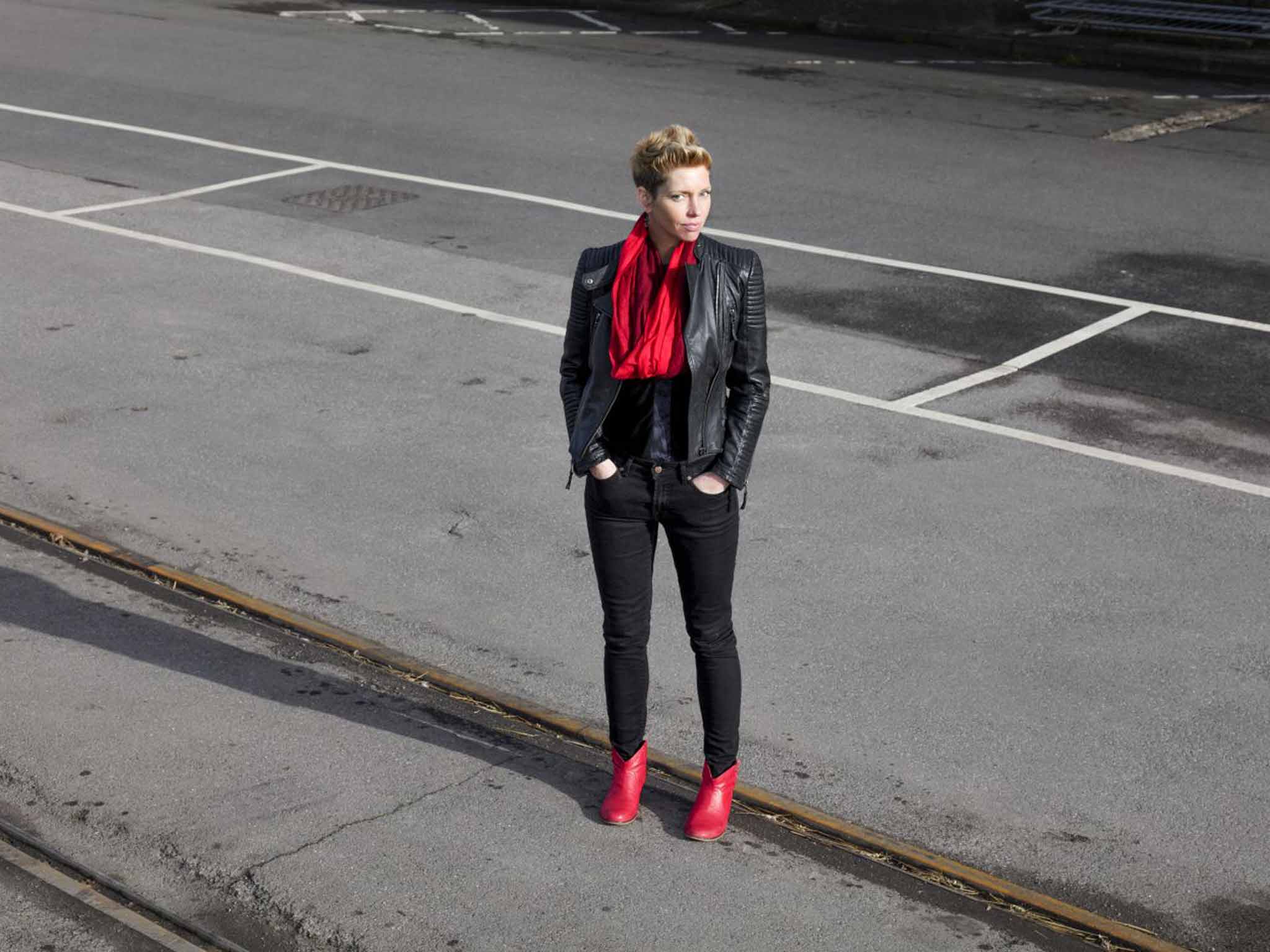How Tansy Davies turned 9/11 into her opera 'Between Worlds'
Tansy Davies makes her operatic debut with a work about the attack on the Twin Towers. Despite the topic, it is a life-affirming piece, she tells Jessica Duchen

Your support helps us to tell the story
From reproductive rights to climate change to Big Tech, The Independent is on the ground when the story is developing. Whether it's investigating the financials of Elon Musk's pro-Trump PAC or producing our latest documentary, 'The A Word', which shines a light on the American women fighting for reproductive rights, we know how important it is to parse out the facts from the messaging.
At such a critical moment in US history, we need reporters on the ground. Your donation allows us to keep sending journalists to speak to both sides of the story.
The Independent is trusted by Americans across the entire political spectrum. And unlike many other quality news outlets, we choose not to lock Americans out of our reporting and analysis with paywalls. We believe quality journalism should be available to everyone, paid for by those who can afford it.
Your support makes all the difference.Tansy Davies sits opposite me at a long table in one of the London Coliseum's odder side rooms: a heavily wallpapered, windowless space in which one might imagine local ghosts wandering by to eavesdrop. She is about to join the roster of composers whose stage works have been embraced by English National Opera: the company and the Barbican have co-commissioned her first opera, Between Worlds. Its world premiere is at the latter venue on 11 April.
You might at first take Davies, 41, for a dancer: she seems all eyes and sinews, having been driving herself almost as hard with her fitness regime as she does with her creative work. Her music, too, can be both muscular and streamlined; it is recognisable almost immediately for its distinctive physical palpability. Drawing on influences ranging from Luciano Berio to Miles Davis, and inspirations from architectural spaces to the tarot and the I Ching, she has created works such as Tilting (2005), Kingpin (2007) and Wild Card (2010), where compulsive rhythms, fragmented melody and outlandish counterpoint testify to her love of funk, contemporary jazz, the avant-garde, and a certain deep, unsettling sense of darkness.
"I love dark colours and bass instruments," Davies confirms. "But generally I'm interested in things which surprise me. That could be music from absolutely any genre – just anything that has an undercurrent which changes something in me. One thing I keep coming back to, maybe unconsciously, is going into dark places and transforming them, finding the beauty in darkness. In a way, it's musical alchemy."
Even so, to begin an operatic output with a work about 9/11, the defining tragedy of this century's first decade, could throw any composer in at the darkest of emotional deep ends. Yet Davies says that despite the topic, the opera will not be all despair. "There's a lot of life in it, as well as death and chaos," she says. "It is maybe a tool for grieving, and for healing as well. We're now 14 years on and it feels as if it's grown organically out of the time we're in. As an artist you hope to be intuitive to your times and the people around you, and it felt like we had to respond to something that was growing within us."

The other part of the "us" is her librettist, the novelist and poet Nick Drake. The two first began to discuss working together six years ago, Davies says; but their initial idea had nothing to do with 9/11. "It concerned the Twin Towers, but it was about Philippe Petit, who walked a high wire between them. Nick had worked with Philippe on a play about the same story and he thought it needed another dimension that is unreachable with words – like music."
Drake and Davies went to New York to meet Petit, she says, "but it turned out that he was engaged in another film, so he was not allowed to work with us. We went our separate ways. But while we were there we went to Ground Zero." That must have planted the seed of an idea. The crucial moment came when Drake met the director Deborah Warner on a trip to the Arctic organised by the Cape Farewell initiative, which invites artists of all types to engage with the scenery and with issues of climate change. "When they got back, the three of us started talking, and Deborah said that we couldn't really do an opera about any aspect of this walk, even if we were allowed, without mentioning 9/11. We were a little taken aback, but we absolutely heard the truth in her words."
The story evolved from there. "It was small steps all along," she adds, "but it always felt as if we were supported by a real belief in each other and a belief that we could do something extraordinary, absolutely heartfelt and true, and that's what we wanted to achieve."
Drake and Davies have based the action around four characters in an imaginary office within one of the towers; further protagonists are a mother, a shaman and a janitor, who offer perspective, distance and also a context of a spiritual and metaphysical nature. "There's a strong emphasis on messages that were sent to and from the towers," Davies says. "Largely in a leap of faith which the Shaman and the Janitor bring about, each of these four people says goodbye to a loved one in an extraordinary way.
"We tried to take in the fact that people did get to say goodbye, and it transcended the chaos in some ways that people were able to reach out to their loved ones. We're not pulling any punches: there's a lot of darkness. But it's all cradled within a sort of spirituality that is all about love and connection. We're balancing things very delicately."
Some of the text, Davies says, was derived from the tone of messages from victims of that day that Drake discovered on WikiLeaks. "They are not quoted exactly, but much of the language used was incredibly simple – 'You made my life', 'I love you', 'Goodbye' – and that was a huge source of inspiration," she says. "This kind of language provides a fabric of expression through the piece."
She adds: "It was incredible to go into my own darkness, very deep; and if you're true enough as a person and as a composer, you find something universal. That's where you can feel you are connecting in a way that can awaken something in other people."
In a felicitous twist of fate, the Mother is sung by Susan Bickley, the mezzo-soprano who years ago took part in a schools workshop that set Davies on her path to becoming a composer when she was a teenager. Davies grew up in Kent and developed an interest in music early on, taking up the French horn when she was 11. But it was a powerful experience several years later that sparked her passion for writing music.
Her school took part in a London Sinfonietta education project with the composer Nigel Osborne, the education manager Gillian Moore (now head of music at the Southbank Centre) and Bickley. It culminated in a massed event in the National Sea Training Centre in Gravesend. "We all composed pieces, Nigel came back to see what we'd done and the selected pieces got performed – but the main thing was the gathering of many schools in this place and hearing the Sinfonietta, and it was just thrilling," Davies remembers. "I was sitting one metre from the stage and it was the most exciting thing. From that moment I couldn't get enough of the sound – and I never stopped."
The question of women composers and their general under-representation in programming inevitably arises. "Personally I feel very lucky to have had the career I've had without ever having discussed that aspect," Davies remarks. "Beyond music, in my personal and humanitarian thinking about the world and how can we become better humans, I feel we need more women being active; we need to raise that different energy. Obviously men and women both have masculine and feminine sides, but it seems to me that the masculine has gone out of balance so it's a question of regaining that balance. It's great to see younger women composers coming up and being quite strident about it, because it's what feels good to them, and that's fantastic."
Today Davies lives in Rochester with her partner, the Norwegian composer Rolf Wallin – who, it turns out, is also writing an opera. "We're complete opposites musically," Davies says, "but we support each other in our hour of need!"
And Between Worlds has been exactly that for her: "The last third had to be written at high speed," she says. "I didn't answer the phone, I didn't answer emails, I was working 18-hour days for about three months, and I couldn't do anything else or I was afraid my concentration would have gone. I was reluctant to interact with the outside world, but sometimes there'd be texts or something on Twitter, people saying 'hang on in there, keep going'. It was like a marathon across a desert – but I felt wonderfully supported."
Now she is looking forward to the opera coming to life on stage. "It really is my biggest work to date and it felt like a necessary thing to do," she says. "Certainly it feels like I've put my cards on the table, feet on the ground, this is it. I've done my absolute best."
'Between Worlds', Barbican, London EC2 (020 7638 8891),11-25 April
Join our commenting forum
Join thought-provoking conversations, follow other Independent readers and see their replies
Comments